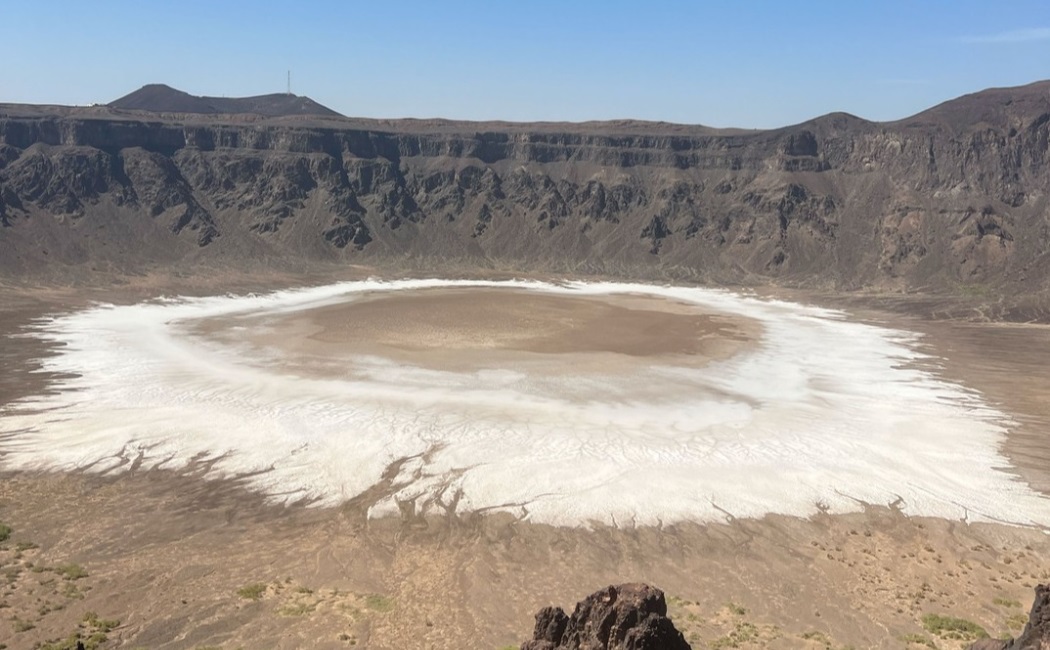
Saudi Arabia crater holds clues for extraterrestrial life
15 October, 2024
n the search for life in space, scientists have studied life in
some of the earth’s most extreme environments. A new study by scientists
at King Abdullah University of Science and Technology (KAUST) has found
biological clues in the Wahbah Crater in Saudi Arabia for life on
Enceladus, one of the moons orbiting Saturn. By sampling extremophiles
living in the crater, the scientists found biosignatures that may mark
life on the celestial body more than 1 billion kilometers away.
Enceladus
has become a curiosity to astrobiologists due to its large ocean below
its icy crust. This water is highly alkaline and saline and includes
complex molecules, such as methane and oxygen, consistent with life.
These features happen to be shared by the Al Wahbah Crater.